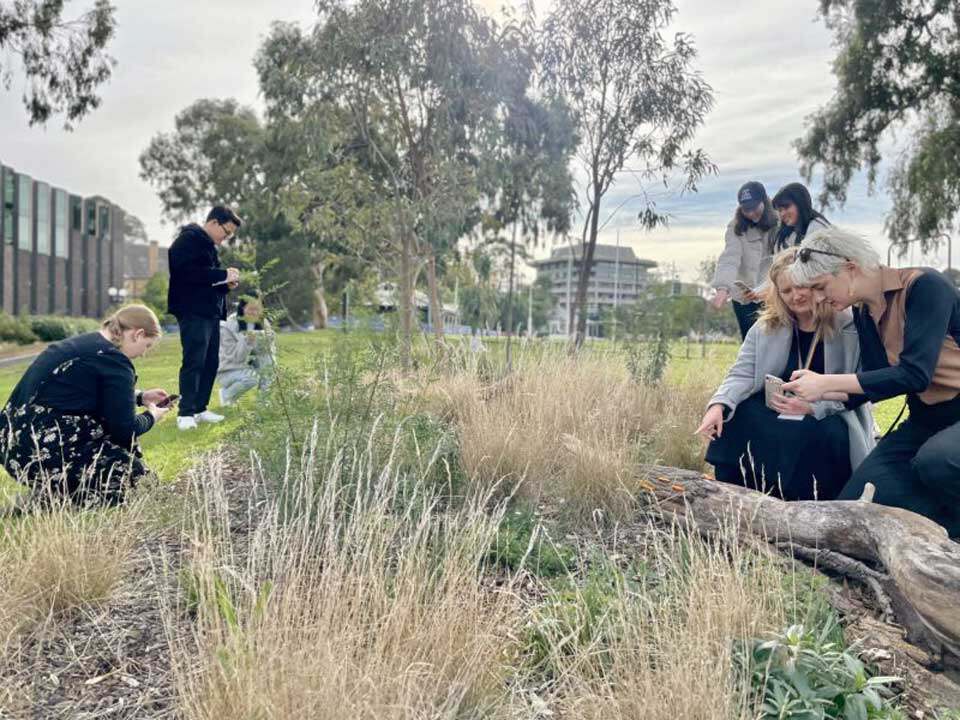The University of Melbourne will be better able to track, protect and enhance the rich biological diversity of its campuses following completion of a long-running Biodiversity Baseline Data Project.


This project is one of the highlights of the University’s 2024 Sustainability Report, released to mark World Environment Day. The report is the third measured against ambitious targets included in the University’s Sustainability Plan 2030.
The Biodiversity Baseline Data Project involved data collection for seven primarily biodiversity metrics across all University campuses, tracking flora, fauna and fungi as well as plantable areas and areas of significance, such as tree hollows, specialised food sources or ecosystem units.
The Project relied on the collective efforts of academics, students and community members who helped gather and analyse the data, including approximately 1500 students across 20 different subjects.
Having a baseline measure ensures the University can continue protecting its diverse biological environment and meet the targets outlined in its Sustainability Plan 2030 of no net biodiversity loss by 2025 and net gain by 2030.
In line with the 2024 Sustainability Report’s theme of “powered by community”, the project also offers an adaptable framework for other institutions to follow, fostering community collaboration to protect Australia’s broader biodiversity.
University of Melbourne Vice-Chancellor Professor Emma Johnston AO praised the staff, students and partners championing sustainability efforts like the Biodiversity Baseline Data Project.
“The University of Melbourne has a responsibility as one of the world’s leading universities to tackle the sustainability challenges facing our society every day.
“I have been hugely impressed by how widely this passion for sustainability is shared among our people.”
University of Melbourne’s Chief Operating Officer Ms Katerina Kapobassis said the University was demonstrating its commitment to embedding sustainability across all aspects of the institution.
“The 2024 Sustainability Report outlines the continuation of work undertaken since we launched our ambitious sustainability goals in 2022, against which we have already recorded many positive results,” Ms Kapobassis said.
“We will continue to drive sustainable operations, lead sustainability research and educate our students in all aspects of sustainability.”
Also highlighted in the 2024 Sustainability Report is the delivery of the University’s first large-scale retrofit electrification project on its Parkville campus, and the innovative social and environmental approach being taken in development of the Australian Institute for Infectious Disease.
The 2024 Sustainability Report is now available to view online here.






































